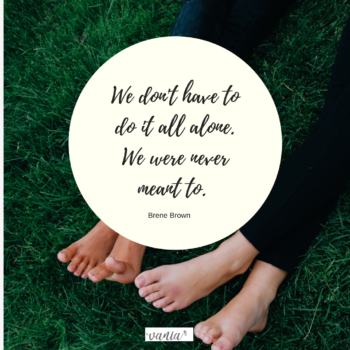 This may be a question you ask yourself as you are reading more about me. Please don’t be scared off by the word Feminist…i know it can carry a lot of weight. I identify as an intersectional feminist, and believe everyone has their own choices and are the experts in our own lives. That means you don’t have to see yourself as a Feminist in order to get support from me, but it does inform my work. While i work from a woman-centred perspective, i know that gender roles and violence impacts all genders.
This may be a question you ask yourself as you are reading more about me. Please don’t be scared off by the word Feminist…i know it can carry a lot of weight. I identify as an intersectional feminist, and believe everyone has their own choices and are the experts in our own lives. That means you don’t have to see yourself as a Feminist in order to get support from me, but it does inform my work. While i work from a woman-centred perspective, i know that gender roles and violence impacts all genders.
“Feminism is not about making women stronger. Women are already strong. It’s about changing the way the world perceives that strength.” G.D. Anderson
Feminism is defined in many ways, but for me it’s the view that women are not treated the same as men in our society. As we live in a patriarchal society, men view women as less than equal (in strength, power, intelligence, etc). This also impacts the lives of transgender women and men, as well as people who are non-binary, as it all stems from the contrived category of gender. My identity as a Feminist also sees that this patriarchal view is wrong and needs to be changed, and that change needs to be active both locally and globally. Further, given the context we live in today, it’s imperative to me to frame my worldview with principles from an Intersectional Feminist anti-oppressive and de-colonizing framework. There is a further imbalance of power that is displayed in therapy that needs to be recognized and confronted, so therapists that work from this framework are aware of the power dynamic and are committed to address any imbalances. One way that this is done is to intentionally self-disclose when therapeutically relevant and to be authentic.
As a Feminist Therapist, i am biased and believe that trauma-informed therapy is inherently also anti-oppressive. That means i incorporate social justice viewpoints as well as name any form of oppression i see in my therapy sessions. As a white, able-bodied, cisgendered woman myself, i work to actively challenge my own biases and privileges. My feminism does not mean i want to be treated as men are, but rather been valued and appreciated for who i inherently am, as we all deserve.
My knowledge in the work of helping people heal from gender-based violence and abuse informs me that most of us have experienced trauma in our lifetime. This knowledge helps me hold space for you and i strive to make you feel as safe as possible, seen and valued when working with me. My work has mainly been as an abuse counsellor for folx who have experienced relational abuse. As a mother to young children, being a Feminist is very important too, so that my children learn how to be respectful and empowered and resilient themselves. It also gives me hope for the future, and guiding my children in the context is paramount to create change.

Feminist Therapy actively makes links to how folx are being treated in our society, and the internalized pressure we experience to be successful, to bounce back, to even become mothers, and to do it all. It reminds us that we are more than just the mothers that we have become, and that we need to take care of ourselves in order to be resilient and balanced. Other further aspects of Feminist Therapy are: to help you gain more tools to empower yourself, to build a sense of community with others, and to see that while your narrative is unique to you, it is also connected to others. Feminist Therapy also places great value on psychoeducation as knowledge is power. So, a lot of my work centres on using somatic-based therapy to intentionally use knowledge from the body and our own nervous system. It is about attuning to our own needs. As i am client-driven, i will suggest tools and activities that may work for you, but it is your choice to see what fits for you and what won’t work. As one of the main principles is consent, i honour your choice and expertise about what works best for you.
To take this a step further, Feminist Narrative Therapy is a modality that looks at your life stories and how they have shaped you to be the person you are today. I am hear (spelling intentional) to help navigate your experiences, and to bring out what you hold dear – your values, goals, dreams, skills, – and bring them back to your forefront. Narrative Therapy is a tool that helps bring the secondary story to mind and help it unpack further why you may be experiencing things right now. Connecting how we are treated in this world based on our gender, sexual preferences, skin colour, and ability are also acknowledged in Feminist Narrative Therapy. It is also helpful to externalize the problem/challenge, as it will help you delve deeper into helping yourself make your life more full of wellness and balance. Your own your narrative; i am just hear to bear witness to it, and hold space for you in a safe and supportive way.
I hope that helps clear things up a bit!

